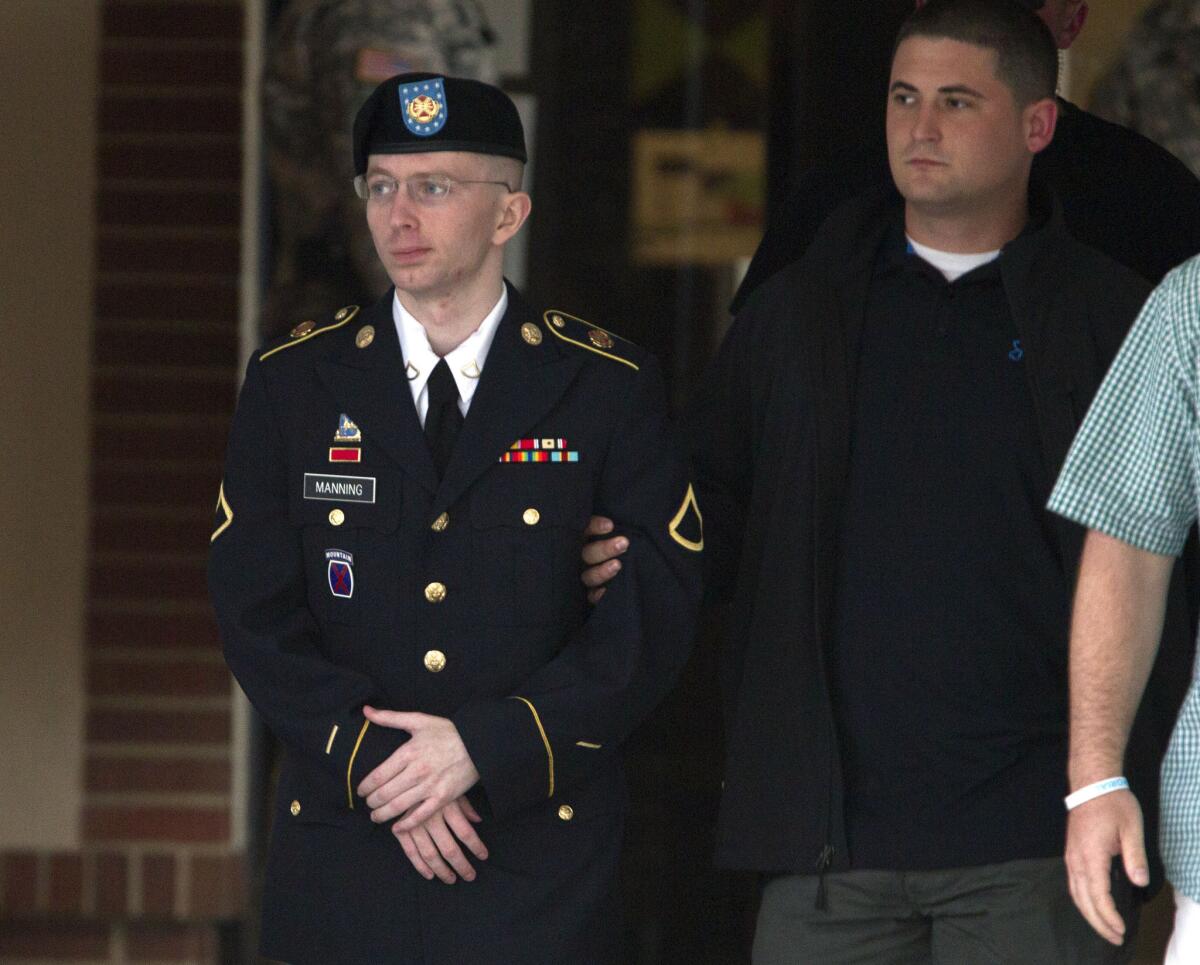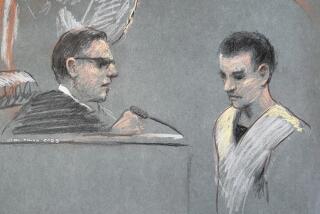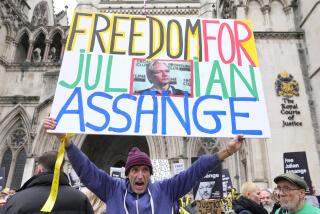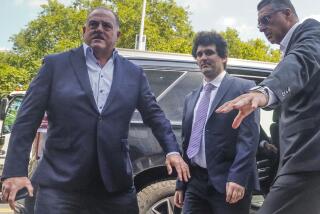Bradley Manning’s defense rests its case in WikiLeaks scandal

FT. MEADE, Md. — Army Pfc. Bradley Manning’s defense rested its case Wednesday after presenting evidence from 10 witnesses, hoping to prove the loads of material the soldier gave to WikiLeaks did not threaten national security or U.S. troops in Iraq and Afghanistan.
Prosecutors argued the former U.S. Army intelligence analyst let military secrets fall into the hands of Al Qaeda’s and its late leader Osama bin Laden. Manning faces 21 charges, including aiding the enemy, which carries a possible life sentence.
Manning did not take the stand during the trial. However, he testified during a pretrial hearing, reading from a 35-page statement in which he said he leaked the material to expose the American military’s “bloodlust” and disregard for human life in Iraq and Afghanistan.
A judge, not a jury, is hearing the case at Manning’s request. Prosecutors said they will call rebuttal witnesses Monday when the trial reconvenes.
On Wednesday, Harvard law professor Yochai Benkler testified that the leak of classified information to the anti-secrecy website changed how the public, the military and traditional news media perceived WikiLeaks — from a legitimate journalistic enterprise to a group that supported terrorism.
Defense lawyers called Benkler to the stand to try undercut the most serious charge Manning faces: aiding the enemy.
Prosecutors must prove that Manning knew the material he sent to the anti-secrecy group would be seen by Al Qaeda members on WikiLeaks’ website.
Benkler said until WikiLeaks started publishing the material in April 2010, even the Pentagon apparently viewed it as a news organization, based on Benkler’s interpretation of a 2008 counterintelligence report that is among the hundreds of thousands of documents Manning admittedly leaked.
After WikiLeaks began publishing more than 250,000 leaked State Department cables in late November 2010, “the response is hard to define as anything but shrill,” Benkler said.
He cited Vice President Joe Biden’s comment in a Dec. 19, 2010, appearance on NBC’s “Meet the Press.”
“I would argue it is closer to being a hi-tech terrorist than the Pentagon papers,” Biden said then.
The counterintelligence report was titled “Wikileaks.org — An Online Reference to Foreign Intelligence Services, Insurgents, or Terrorist Groups?” Prosecutors offered it as evidence Manning knew WikiLeaks was a conduit to the enemy.
The opening paragraph said “the intentional or unintentional leaking and posting of U.S. Army sensitive or classified information to Wikileaks.org could result in increased threats to DoD personnel, equipment, facilities, or installations.”
Under questioning by defense attorney David Coombs, though, Benkler said the report described WikiLeaks by using some of the same terms one would use to describe a newspaper. Even founder Julian Assange is identified as a “staff writer.”
Manning, 25, has acknowledged giving the anti-secrecy group hundreds of thousands of Iraq and Afghanistan battlefield reports and State Department diplomatic cables, along with battlefield videos and other documents.
He downloaded them in late 2009 and early 2010 from a classified government computer network while working as an intelligence analyst in Iraq. WikiLeaks posted much of the material on its website. Manning has said he leaked the material to provoke public discussion about what he considered wrongdoing by American troops and diplomats.
The material included video of a 2007 U.S. Apache helicopter attack in Baghdad that killed 11 men, including a Reuters news photographer and his driver. A military investigation concluded the troops reasonably mistook the photography equipment for weapons.
Manning in February pleaded guilty to 10 lesser charges of mishandling classified data in return for a sentence of 20 years in a military prison, a position he reiterated at the start of the trial Monday morning. Remaining are 21 other charges including endangering the U.S. and “aiding the enemy,” which could bring life in prison.
ALSO:
Defense completes its case in George Zimmerman trial
Texas abortion bill headed to Senate after House OKs it, 96-49
Thousands honor hotshot firefighters ‘gone at the turn of the wind’
More to Read
Sign up for Essential California
The most important California stories and recommendations in your inbox every morning.
You may occasionally receive promotional content from the Los Angeles Times.










